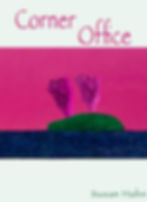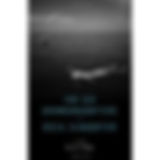
-BESTSELLING AUTHOR-
SUSAN HAHN
CORNER OFFICE
"Multitalented Hahn returns to poetry after two novels, Losing Beck (2018) and The Six Granddaughters of Cecil Slaughter (2012), with a book-length poem in three voices that reflects her experience as a playwright. Man, Woman, and Earth express feelings of loss and longing. Man is forced to pack up his cherished corner office, a diminishment in locus and status that induces him to try to douse his anger in the embrace of various women, though Woman is the one he wants most. Woman notes that she also had a corner office, though hers was “sliced in half.” She is watching her father (he, too, had a corner office) fade into advanced old age. She yearns for attention, light, and direction, though she keeps her own counsel, stating, “The old philosophers are of no use. / They do not know this new world.” In despair of its befoulment and destruction, Earth is the most poignant: “I cannot seem to stop / the injuries inflicted.” Even the corner office, that human holdfast, prize, and proof of identity and power, harms nature when a bird “smashed / into the huge slab of window glass.” Earth speaks: “I ask, ‘How did it come to this?’” Hahn’s triad of monologues is lucid, arresting, and evocative."
-BOOKLIST
LOSING BECK
Now also available as an audiobook.
"One of the most original works of our time."
-DAVID KIRBY
"A diary of amour fou; a two-act play featuring Nijinsky as an apparition of art and madness; a novella largely about the sexual politics of poetry publication. This triptych of narratives contains a plentitude of characters driven by overpowering emotions and dark motives. Admirers of Susan Hahn's poetry will recognize some of the motifs, and some of the gorgeous language, woven throughout these Strindbergian plots. This work is the poet's urgent gift to her devoted readers, who will be thankful, once again, that an author of such x-ray vision lives among us."
-LAURENCE GOLDSTEIN
"This daring, explicit, mordant, and unnerving multigenre triptych is also laced with poetry. Hahn has built an audaciously gothic house of mirrors reflecting the midnight side of obsession and creativity, the inheritance of pain, the cruel symbiosis between art and madness, and the longing for transcendence."
-BOOKLIST
THE SCARLET IBIS
In The Scarlet Ibis, Susan Hahn has created an intricately structured sequence of interlinked poems centered around the single compelling image of the ibis. The resonance of this image grows through each section of the book as Hahn skillfully employs theme and variation, counterpoint and mirroring techniques. The ibis first appears as part of an illusion, the disappearing object in a magician’s trick, which then evokes the greatest disappearing act of all—death—where there are no tricks to bring about a reappearance. The rich complexity multiplies as the second section focuses on a disappearing lady and a dramatic final section brings together the bird and the lady in their common plight—both caged by their mortality, their assigned time and role. All of the illusions fall away during this brilliant denouement as the two voices share a dialogue on the power of metaphor as the very essence of poetry.
Reviewers of Hahn's earlier books have linked her work to that of the confessional poets of the '50s and '60s, with the lurid, tell-all poems of Robert Lowell, Anne Sexton, John Berryman and Plath. The resemblance is there, but Hahn can't be written off as a mere neo-confessional, because her poetry is much more deeply rooted in the American mindset than that. For the Gothic viewpoint accounts for everything the founding fathers overlooked: terror, perversity, strangeness, a sense of not knowing where one is or how one got there. It is a way of viewing the world that continues to affect American writing and that appears in works by such recent authors as William Faulkner, Flannery O'Connor, Ralph Ellison, Truman Capote and Joyce Carol Oates. And now we can add Susan Hahn's name to that list.
-DAVID KIRBY, Chicago Tribune














